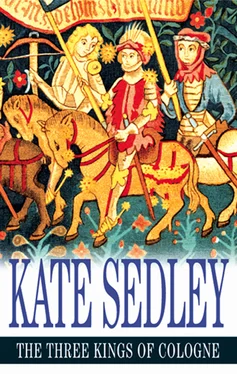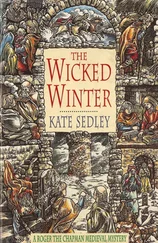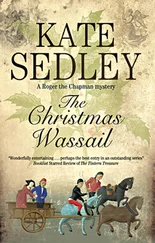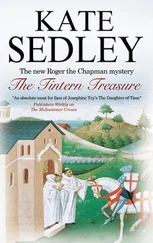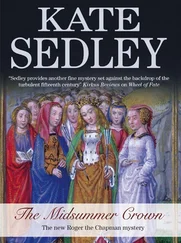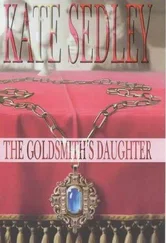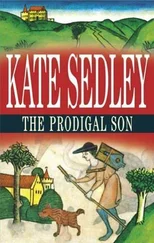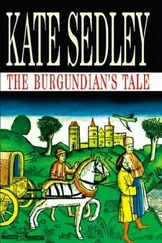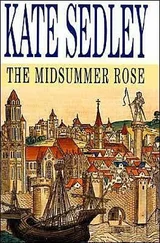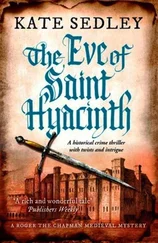Kate Sedley - The Three Kings of Cologne
Здесь есть возможность читать онлайн «Kate Sedley - The Three Kings of Cologne» весь текст электронной книги совершенно бесплатно (целиком полную версию без сокращений). В некоторых случаях можно слушать аудио, скачать через торрент в формате fb2 и присутствует краткое содержание. Жанр: Исторический детектив, на английском языке. Описание произведения, (предисловие) а так же отзывы посетителей доступны на портале библиотеки ЛибКат.
- Название:The Three Kings of Cologne
- Автор:
- Жанр:
- Год:неизвестен
- ISBN:нет данных
- Рейтинг книги:5 / 5. Голосов: 1
-
Избранное:Добавить в избранное
- Отзывы:
-
Ваша оценка:
- 100
- 1
- 2
- 3
- 4
- 5
The Three Kings of Cologne: краткое содержание, описание и аннотация
Предлагаем к чтению аннотацию, описание, краткое содержание или предисловие (зависит от того, что написал сам автор книги «The Three Kings of Cologne»). Если вы не нашли необходимую информацию о книге — напишите в комментариях, мы постараемся отыскать её.
The Three Kings of Cologne — читать онлайн бесплатно полную книгу (весь текст) целиком
Ниже представлен текст книги, разбитый по страницам. Система сохранения места последней прочитанной страницы, позволяет с удобством читать онлайн бесплатно книгу «The Three Kings of Cologne», без необходимости каждый раз заново искать на чём Вы остановились. Поставьте закладку, и сможете в любой момент перейти на страницу, на которой закончили чтение.
Интервал:
Закладка:
I struggled against a growing sense of disbelief.
‘But you and your wife never saw any of these men? You never thought to follow your daughter when she went out riding? You mentioned a nurse. Could she not have ridden with Isabella?’
Jonathan Linkinhorne grew testy, snapping at me, suddenly impatient.
‘You can’t have been listening, Master Chapman. I told you, my wife was over forty when our child was born. I was forty-five. So by the time we are now talking about, Amorette and I were both over sixty. Indeed, my wife had celebrated her sixtieth birthday shortly before Isabella disappeared. And Emilia — Emilia Virgoe, Isabella’s nurse — as well as being in her forties, was no horsewoman. There was no possible way that either one of us could have kept up with my daughter when she was on horseback.’ He was beginning to sweat and jerked his stool away from the fire’s heat before continuing. ‘You must understand that Isabella had an instinctive bond with horses from the moment she first clapped eyes on one. She was a superb horsewoman. There was no possible way anyone could have kept up with her, followed her, if she didn’t wish it.’
I, too, was starting to sweat, the heat on my back making me feel slightly sick and light-headed. I got up and walked round the table to sit beside my reluctant host. My mouth was parched, and I looked longingly at Jonathan Linkinhorne’s still quarter-full beaker of ale. He pushed it towards me.
‘Take it,’ he muttered. ‘Small beer’s all you get here and I can’t bear the stuff. Wine’s the only fit drink for a civilized human being.’
‘If you can afford it,’ I retorted, swallowing the remains of the ale in a couple of gulps.
‘Oh, I could always afford it,’ he declared, suddenly boastful. ‘The holding I worked for Lord Cobham was a flourishing one. Four or five hands I had under me at one time, and two girls to do the milking and feed the hens and work in the house. I provided near enough the whole manor with vegetables, and sufficient over to sell in Bristol market at least once, sometimes twice a week.’
He was silent again, staring into space. Then, after a while, he buried his face in his hands.
‘Master Linkinhorne?’ I murmured, gently squeezing his shoulder, aware, as he apparently was not, that his conduct was beginning to attract attention. Nudges, winks and nods were being exchanged among the other old people nearby, who, although probably at least partially deaf, had nevertheless been taking a close interest in our conversation. My brief acquaintance with my companion had convinced me that he would hate to make himself conspicuous in any way, or be the subject of whispered speculation among his fellow inmates, all of whom, I felt sure, he deeply despised. He was that most pitiable of creatures; a man with more than his fair share of pride, fallen on hard times. I lowered my mouth to within an inch of his ear. ‘Master Linkinhorne, people are looking.’
He raised his head, sat up straight and gazed belligerently around him. There was an uneasy shuffling of feet, an awkward avoidance of glances before the others turned back to what they had previously been doing; playing board games, reading or simply chatting and bickering amongst themselves.
Jonathan Linkinhorne shrugged off my hand and reached for his beaker, forgetting that he had allowed me to empty it. When he did remember, he slammed it back on the table in disgust.
‘Let me fetch you some more,’ I offered guiltily, half-rising from my seat.
He shook his head.
‘You don’t understand, Master Chapman,’ he said fiercely. ‘When you live on charity, you don’t ask for more.’
‘I’m sure that if I explain …’
‘No!’
I sank back on to my stool. ‘Very well.’
‘In any case, I hate the stuff.’
‘So you said. But if you’re thirsty-’
‘For God’s sake, fellow, do as you’re told.’
Yes, I thought to myself, this is more like the man you once were before disaster and indignity blighted your life. I waited a few seconds to let reality sink in again, then asked neutrally (although I already knew part of the answer), ‘What happened after Isabella disappeared? Did you and your wife continue as you had before?’
Jonathan gave a snort of mirthless laughter.
‘Use your imagination, man! If, that is, you have any! How could we? Our one and only chick had gone. Flown the coop. Everything we had done and thought and said for twenty years had been for Isabella. Now there was no one. Nothing! Of course, for a while, for weeks, months, we half-expected that she would return, bringing her husband — that is, whichever of the three men she had finally chosen — with her. But when a year had passed and we had heard nothing from her, we began to suspect that she was never coming home.’
‘But surely,’ I persisted, ‘in the early days, you must have made some push to find her? You must have made enquiries?’
‘Of course we did! The day she failed to come back from riding, we sent to Emilia at her cottage and I went myself to my cousin at the nunnery, to discover if either of them had seen Isabella. If, by chance, she was with one of them. The following morning, we took the hands from their work and sent them to scour the countryside in case our daughter had met with an accident. We sent both girls to Clifton village to find out if anyone there had seen her since she rode out the previous morning. Lord Cobham was away from home — he often was — but Amorette and I visited the house and made enquiries of the housekeeper.’
‘Without result? No one had seen Isabella at all the day she vanished?’
‘Oh, people had seen her. There had been several sightings of her in the morning near Westbury village, in the company of a man. But nobody could say which one. At least, there seemed to be disagreement about his identity. It was a wet March day, cold and windy, and with a hint of sleet in the air. It seems that both Isabella and her companion, whoever he was, had the hoods of their cloaks pulled well forward, making it difficult to see their features distinctly.’
‘In that case, how were your informants certain that it was your daughter that they’d seen?’
‘They knew her by her cloak. It was dark blue, lined with scarlet wool.’
‘Ah … And did you find out how late in the day it was when Isabella was last observed?’
Jonathan Linkinhorne shook his head. I could tell by the shuttered expression on his face that suddenly he had had enough. He did not want to think or talk about the subject any more.
‘I’ve told you, Master!’ He slammed his open palm against the tabletop, again attracting the attention of his neighbours, but now past caring. ‘It’s too long ago. I’d like you to go.’
I had often seen this happen with older people: for a while they were bright and energetic, then, without warning, they wilted like flowers in the summer heat, overcome by fatigue. I patted his gnarled and brown-spotted hand.
‘I’m leaving,’ I said. ‘Just one more question. This nurse, this Emilia … Virgoe, did you say?’ He nodded. ‘Is she still alive?’ He nodded again. ‘Do you know where I can find her?’
‘That’s two questions,’ Jonathan reminded me, but answered all the same. ‘She has a cottage on Lord Cobham’s estate. Ask for her in Clifton village. Anyone will tell you where she lives.’ His gaze and voice sharpened, the milky blue eyes focusing on my face, almost as if he were seeing me properly for the first time since my arrival. ‘What do you want with Emilia? She can’t tell you any more than I have done. She’s over sixty now. Old people don’t want to be bothered cudgelling their brains to remember things long gone and best forgotten. It’s upsetting. And the plain truth is, Master Chapman, that Isabella’s been dead to me — and, I suspect, to Emilia — these many years. Finding her body hasn’t made her death any more real, except in the sense that now I know for certain, for a fact, that I’ll never set eyes on her again.’
Читать дальшеИнтервал:
Закладка:
Похожие книги на «The Three Kings of Cologne»
Представляем Вашему вниманию похожие книги на «The Three Kings of Cologne» списком для выбора. Мы отобрали схожую по названию и смыслу литературу в надежде предоставить читателям больше вариантов отыскать новые, интересные, ещё непрочитанные произведения.
Обсуждение, отзывы о книге «The Three Kings of Cologne» и просто собственные мнения читателей. Оставьте ваши комментарии, напишите, что Вы думаете о произведении, его смысле или главных героях. Укажите что конкретно понравилось, а что нет, и почему Вы так считаете.
